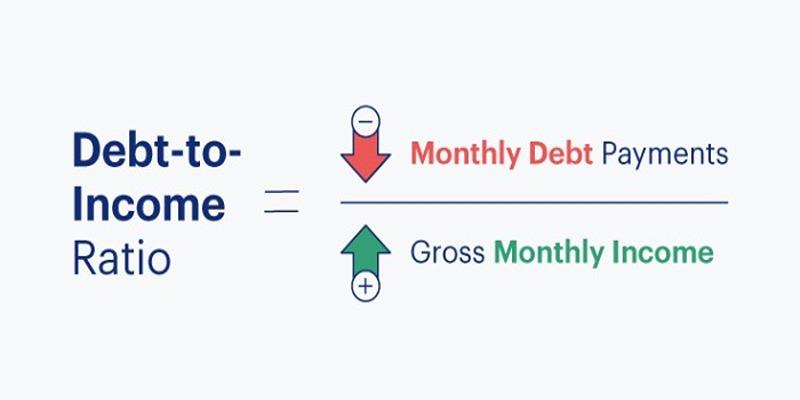Are you considering a second bachelor’s degree? Perhaps you already have one and are looking for additional options to further your education and career. Financing the college expense can be difficult no matter how much experience you have navigating college resources, but that shouldn't stop anyone whose heart is set on pursuing their dreams.
Fortunately, several financial aid options are available for those seeking a second bachelor's degree—let us explore them in more depth to equip you with the information needed to get the most out of these opportunities.
Get Financial Aid For A Second Bachelor’s Degree

One of the first steps to financing a second bachelor's degree is to apply for federal student aid. This includes completing the Free Application for Federal Student Aid (FAFSA), which will ask about your financial situation and allow you to receive grants, loans, and work-study programs.
Other federal aid programs like Teacher Education Assistance for College and Higher Education (TEACH) Grants are awarded to students who plan to teach in a high-need field in an elementary or secondary school.
State grants may also be available depending on your home state's programs. These tend to have specific requirements and can cover some college tuition costs for lower-income families. Finally, many universities offer scholarships tailored to second-bachelor degree seekers, so review the school’s website for any potential awards.
Can I Get Student Loans For A Second Bachelor’s Degree?

Student loans can help cover the cost of a second bachelor's degree. However, they should only be taken on as a last resort. Federal and private student loan programs are available to those seeking additional education through a second bachelor’s degree program. When applying for a student loan, reviewing the interest rates and repayment options is important to ensure you can afford this additional expense.
Additionally, some programs offer loan forgiveness and debt relief for those pursuing careers in public service or other areas of need. Getting a loan from family members or friends is also possible, but be sure to draw up a repayment agreement as soon as possible to keep tensions over money from affecting your relationships.
Can a Student Receive a Pell Grant for a Second College Degree?
Pell Grants are generally awarded to undergraduate students who display financial need. If you do not qualify for a Pell Grant, you may still be eligible for other federal aid programs or scholarships offered through your university. Some private institutions also have grant and scholarship programs for second bachelor's degree seekers.
Use Financial Aid for a Second Bachelors Degree?
Financing a second bachelor’s degree can be challenging, but there are options available to those willing to take the time and do their research.
Applying for FAFSA
Be sure to apply for federal student aid, such as the FAFSA. This will give you access to grants, loans, and work-study programs that can help defray the cost of tuition. Even if you did not previously qualify for a Pell Granny, don't be discouraged—plenty of other options are available. Visit the FAFSA website to get started and complete the necessary forms. You can contact your school's financial aid office for assistance in understanding and utilizing available resources.
Explore State Resources
State resources can also be a great source of financial aid for those pursuing a second bachelor's degree. Depending on where you call home, you may have access to grants and scholarships tailored specifically to second bachelor's degree seekers. Be sure to visit your state Department of higher education website and look into any potential programs or organizations offering assistance through monetary awards. Additionally, many states have additional loan forgiveness programs or debt relief options that can help those in need. Take some time to explore the resources available in your area and find out how they can help you finance your second bachelor's degree.
Accepting Financial Aid
Financial aid is invaluable for those pursuing a second bachelor's degree. In addition to grants, scholarships, and loan programs offered by the federal government, states, and universities may also have access to resources designed specifically for students in need. Whether you apply for federal student aid first or seek out other sources of assistance, it's important to take full advantage of every option available to make college more affordable.
Be sure to explore all resources available, and don't be afraid to ask for help if needed. Accepting financial aid can take the burden off your shoulders and help make your second bachelor's degree a reality.
Seeking Out Scholarships
Scholarships are another great way to finance a second bachelor’s degree. Many universities, nonprofits, and companies offer these awards to students who demonstrate financial need or meet certain criteria. Doing your research is key to finding the right scholarship for you. Be sure to read the application requirements carefully and apply before the deadline to give yourself the best chance of success.
Additionally, consider contacting organizations in your community or industry that can provide additional resources. Even if you are still looking for the perfect scholarship, keep an open mind and apply whenever possible you never know where you may get the help you need for your second bachelor's degree.
Ways to Pay for a Second Bachelor’s Degree
Financing a second bachelor’s degree can seem daunting, but there are many options available for those willing to take the time and do their research. Federal student aid programs like FAFSA provide grants, loans, and work-study opportunities to help cover tuition costs.
State resources such as grants or loan forgiveness can be beneficial, while scholarships from universities, nonprofits, and companies may be tailored to second bachelor's degree seekers. Exploring these options can make your dream of a second bachelor's degree a reality without breaking the bank.
Lastly, consider taking out loans from family or friends as a last resort, drawing up an agreement for repayment to keep tension at bay. You can make your second degree a reality with time and effort.
FAQS
What kind of funding is available for a second bachelor’s degree?
Funding for a second bachelor's degree can come from federal student aid programs, state resources, scholarships offered by universities and nonprofit organizations, or loans from family and friends. It is important to research to find the best option for you.
Is getting a Pell Grant for a second bachelor’s degree possible?
Pell Grants are generally awarded to undergraduate students with financial need, so the answer is no. However, other federal aid programs or scholarships may be available through your university or state resources to help finance your second bachelor's degree. Some private institutions have grant and scholarship programs for second bachelor's degree seekers.
Is there an age limit for receiving financial aid?
No, there is no age limit for receiving financial aid. However, it is important to note that the FAFSA website does list eighteen (18) as the minimum age for federal student aid eligibility. Some grant and scholarship programs may have specific criteria or age limits to be met to receive the award, so it is important to carefully research and read any related documents.
Conclusion
Ultimately, if you’ve been looking for a way to go back to school and earn your second bachelor’s degree, federal financial aid is a great option that can help you accomplish your goal. The Free Application for Federal Student Aid (FAFSA) application process is relatively easy, and taking the time to apply for financial aid will leave you with more money in the bank, less debt, and a valuable degree that could kickstart your career. Leaping higher education can sometimes be intimidating, but with the right amount of research and support, you can find the path to success.




